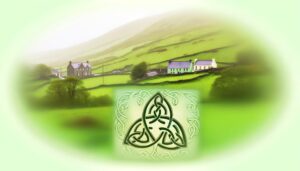Kathleen Name Meaning and Origin
Kathleen is a name with rich historical significance, originating from the Irish Caitlín, which comes from the Old French Catherine and ultimately traces back to the Greek Aikaterine. Its phonetic evolution reflects the interplay between Gaelic pronunciation and linguistic adaptation over time.
Popularized in the early 20th century, Kathleen saw heightened use in the mid-20th century, particularly in the United States. Despite a modern decline in popularity, Kathleen's timeless charm and cultural resonance persist.
Notable bearers include Kathleen Sebelius and Kathleen Turner, underscoring its continued relevance and prestige. Explore further to uncover detailed insights into its journey through history.

Key Takeaways
- Kathleen originates from the Irish name Caitlín, itself derived from the Greek name Aikaterine.
- The name Kathleen has Old French influences, particularly from the name Cateline.
- Historically popular in the early to mid-20th century, Kathleen has seen a modern decline in preference.
- Kathleen has variations like Caitlin, Cathleen, Katalin, and Caitlyn, highlighting its cultural adaptability.
- Prominent figures named Kathleen include actress Kathleen Turner and politician Kathleen Sebelius.
Etymology of Kathleen
The name Kathleen originates from the Irish name Caitlín, which is the Gaelic form of the Old French name Catherine. This lineage reflects a rich linguistic evolution, with Catherine itself deriving from the Greek name Aikaterine.
The Greek root is often associated with 'katharos,' meaning pure. The shift from Catherine to Caitlín involved phonetic adaptations to suit Gaelic pronunciation norms, subsequently Anglicized to Kathleen. This transformation underscores the interplay between language, culture, and naming conventions.
Phonological adjustments, particularly vowel and consonant modifications, were pivotal in this evolution. Understanding the etymology of Kathleen offers insight into its cultural and historical contexts, demonstrating how names adapt and persist through linguistic and geographical changes.
Historical Background
Throughout history, the name Kathleen has been prominently borne by notable figures and has maintained its popularity across various cultures and time periods. Originating in Ireland, Kathleen became widespread due to its adoption by English-speaking countries.
In the early 20th century, Kathleen gained significant traction in the United States, largely influenced by immigration patterns and cultural exchange. Historical records reveal its association with prominent women in politics, arts, and literature, underscoring its enduring appeal.
For example, Kathleen Kennedy, a member of the influential Kennedy family, and Kathleen Turner, an acclaimed actress, have brought the name into public consciousness. This historical continuity underscores Kathleen's lasting resonance and its ability to transcend cultural and temporal boundaries.
Linguistic Roots
Kathleen's historical prominence is further enriched by examining its linguistic roots, which trace back to the Irish name Caitlín, a variant of the Old French name Cateline and ultimately derived from the Greek name Aikaterine. The journey of the name through various cultures and languages provides a fascinating exploration of its evolution.
- Irish Origin: Caitlín is the Irish form of Cateline, indicating a strong cultural adaptation.
- Old French Influence: Cateline, used in medieval France, showcases the name's spread through European nobility.
- Greek Ancestry: Aikaterine, the original Greek name, signifies purity and is linked to early Christian saints.
- Phonetic Evolution: The shift from Aikaterine to Caitlín and then Kathleen highlights linguistic changes over centuries.
Cultural Significance
The cultural significance of the name Kathleen can be traced through its historical usage and religious connotations.
Historically, the name has been popularized by various notable figures, enhancing its prominence in different eras.
Additionally, its religious importance is underscored by its connection to Saint Catherine, reflecting a rich tradition of Christian naming practices.
Historical Name Usage
Tracing its roots to Irish and Greek origins, the name Kathleen has held significant cultural relevance across various historical periods. This enduring appeal can be observed through its usage in literature, politics, and popular culture.
- Literature: Kathleen appears in numerous literary works, particularly in the poems of W.B. Yeats, reflecting its romantic and traditional Irish connotations.
- Politics: The name was borne by Kathleen Kennedy, a prominent member of the influential Kennedy family, showcasing its presence in American political history.
- Popular Culture: The name gained international recognition through the song 'I'll Take You Home Again, Kathleen,' which became a cultural touchstone.
- Historical Records: Census data from the early 20th century reveal Kathleen was consistently popular in English-speaking countries, highlighting its timeless appeal.
Religious Importance
In addition to its literary, political, and cultural resonance, the name Kathleen holds significant religious importance, particularly within Catholic traditions. Derived from the Greek name Aikaterine, Kathleen is often associated with Saint Catherine of Alexandria, a revered Christian martyr known for her scholarship and virtue.
Saint Catherine's influence extends through various Christian denominations, but she holds a particular veneration in Catholicism, where she is considered a patron saint of students and scholars. The name Kathleen, hence, carries connotations of intellectual and spiritual devotion.
Additionally, the name's popularity in Ireland, a predominantly Catholic country, further underscores its religious significance. This deep religious heritage enhances Kathleen's cultural richness, making it a name steeped in both spiritual and historical depth.
Popularity Over Time
Analyzing the popularity of the name Kathleen over time reveals significant historical trends, including a peak in usage during the mid-20th century.
Regional fluctuations further illustrate varying adoption rates across different geographic areas.
Modern usage patterns indicate a decline in preference, reflecting broader shifts in naming conventions.
Historical Trends Analysis
The popularity of the name Kathleen has experienced notable fluctuations over the decades, reflecting broader social and cultural trends. Initially gaining prominence in the early 20th century, the name peaked in the 1940s and 1950s, driven by its Irish roots and the influence of popular culture.
Analyzing the historical trends, we observe:
- 1920s-1940s: Steady rise in popularity, correlating with increased Irish immigration to the U.S.
- 1950s-1960s: Peak popularity, often ranking in the top 20 names for girls.
- 1970s-1990s: Gradual decline, possibly due to a shift toward more modern or diverse names.
- 2000s-present: Continued decrease, with the name becoming less common in recent years.
These trends highlight the dynamic nature of name popularity over time.
Regional Popularity Fluctuations
An in-depth examination of regional popularity fluctuations reveals that the name Kathleen has experienced diverse trends across different geographical areas, reflecting varying cultural influences and demographic shifts. In the United States, Kathleen peaked in the 1940s and 1950s, particularly in states with high Irish-American populations. Conversely, in the United Kingdom, the name saw significant popularity during the 1960s and 1970s, aligning with broader cultural trends. The table below illustrates these fluctuations:
| Region | Peak Popularity Period |
|---|---|
| United States | 1940s-1950s |
| United Kingdom | 1960s-1970s |
| Ireland | 1930s-1940s |
| Australia | 1950s-1960s |
These variations highlight the influence of migration patterns, local traditions, and evolving societal norms on the name's popularity.
Modern Usage Patterns
Building on these regional popularity fluctuations, modern usage patterns of the name Kathleen reveal a marked decline in its frequency, with contemporary parents favoring more currently trending names. This decline can be attributed to several factors:
- Cultural Shifts: Preferences have shifted towards names reflecting current cultural icons or modern trends.
- Generational Changes: Older names like Kathleen are perceived as less fashionable by newer generations.
- Globalization: Increased exposure to diverse names from various cultures has expanded the pool of choices.
- Media Influence: Popular media heavily influences name trends, often spotlighting contemporary and novel names over traditional ones.
These elements collectively contribute to the reduced prevalence of Kathleen in modern naming conventions.
Famous People Named Kathleen
Renowned in various fields such as politics, entertainment, and literature, individuals named Kathleen have made significant contributions that highlight the versatility and impact of this name.
Kathleen Sebelius, former U.S. Secretary of Health and Human Services, played a pivotal role in the implementation of the Affordable Care Act.
In the domain of entertainment, Kathleen Turner is celebrated for her dynamic acting career, which includes iconic films like 'Romancing the Stone.'
Literature also boasts Kathleen Norris, an acclaimed poet and essayist whose work explores spirituality and human experience.
These examples underscore the multifaceted achievements of women named Kathleen, demonstrating the name's broad cultural resonance and influence across diverse professional arenas.
Name Variations
The name Kathleen has several variations that reflect cultural and linguistic differences, offering a rich tapestry of forms such as Caitlin, Cathleen, and Katalin. These variations provide insight into the name's adaptability and significance across various regions.
- Caitlin: Originating from Irish and Welsh cultures, Caitlin is a widely recognized variation that has gained popularity in English-speaking countries.
- Cathleen: This Anglicized form retains much of the original Irish phonetic structure, making it a familiar yet distinct choice.
- Katalin: A Hungarian variation, Katalin showcases the name's widespread appeal and adaptability to different linguistic frameworks.
- Caitlyn: A modern spelling variant that has become popular in contemporary usage, reflecting evolving naming trends.
These variations underscore the global resonance and versatility of the name Kathleen.
Modern Usage
In modern society, the name Kathleen continues to maintain its charm and relevance, frequently selected for its timeless grace and cultural significance. Despite a decrease in popularity over recent decades, Kathleen remains a preferred choice among parents who value its classic appeal and historical roots.
Its usage spans across various cultures, mainly in English-speaking nations, showcasing its flexibility and lasting allure. Additionally, the name's connection with prominent figures in literature, politics, and entertainment emphasizes its versatility and enduring prestige.
In present-day settings, Kathleen is often paired with middle names that vary from classic to modern, showcasing its compatibility with a wide range of naming trends. This flexibility ensures Kathleen's continued presence in contemporary naming practices.
Conclusion
To sum up, the name Kathleen, with its rich etymology and historical background, reveals much about linguistic evolution and cultural significance. Its roots in the Irish name Caitlín and its subsequent adaptations highlight the dynamic nature of language.
How does the enduring popularity of Kathleen reflect broader societal values and historical trends? From its prominence in historical records to its modern usage, the name Kathleen continues to be a subject of fascination and scholarly interest.






